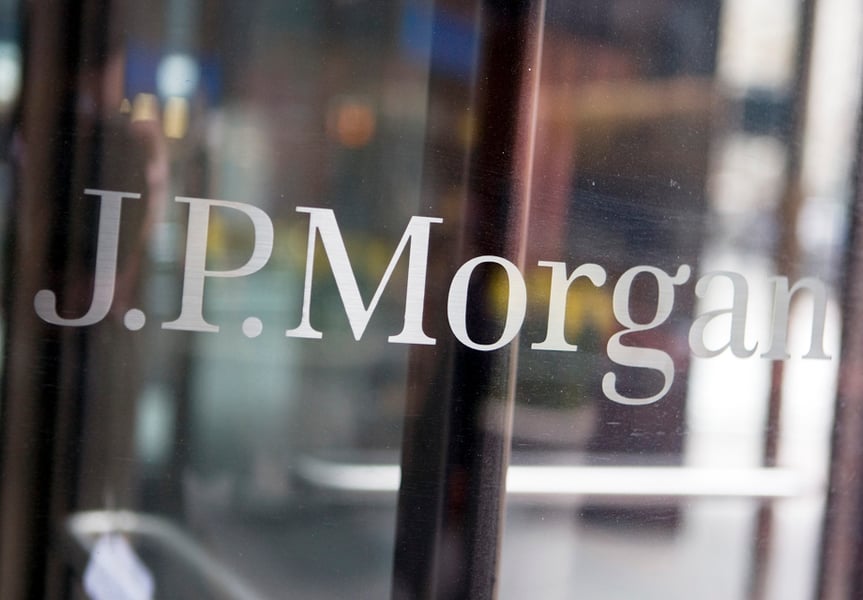For the second year in a row, JPMorgan Chase & Co. won the most dollars among actively mutual fund managers in 2014, according to an estimate by Morningstar Inc., as advisers flocked to a broad range of its products but only select funds at other top managers.
Morningstar said the company's money management unit, J.P. Morgan Asset Management, took $28.8 billion into its actively managed mutual funds and ETFs last year. The results stood in contrast to other top money managers, which saw flows stall or turn into large redemptions. And even competitors that did have inflows drew a good part of their business from a small set of exotic, blockbuster funds.
For instance, nontraditional bond funds, many of which afford managers a broad
“go-anywhere" mandate to navigate the markets, were a big hit for Goldman Sachs Asset Management and BlackRock Inc., the world's largest money manager.
Products in that category commanded 79% of the two brands' mutual funds intake for the year, according to Morningstar.
But J.P. Morgan Asset Management attracted funds into a broader set of products, some of them plain vanilla. In 2014, 73 of the firm's 101 funds had inflows, according to Morningstar.
Its suite of stock, bond, multiasset and international funds all took in assets. And the firm is trying to build up its alternative offerings and exchange-traded funds, launching a set of so-called smart beta funds, an investment strategy seen as straddling active and passive management.
“The bar is higher because of the growth of ETFs and passive strategies — financial advisers expect more from active managers than they have historically,” said George Gatch, global head of clients in investment management at JPMorgan Chase & Co.
Overall, J.P. Morgan Asset Management's assets under management totaled $1.744 trillion on Dec. 31, up 2% from Sept. 30 and up 9% from a year earlier, according to JPMorgan Chase's fourth-quarter earnings report, issued Wednesday. Net inflows for the quarter reached $37 billion.
Laura Lallos, who covers the firm for Morningstar, said its investment in marketing to financial advisers was crucial.
“For the last several years, they've had success in bringing money into equity funds when other companies are seeing outflows or not seeing major inflows,” Ms. Lallos said. “They have a pool of advisers that want to work with J.P. Morgan for a variety of reasons,” including considerable education outreach and market evangelizing by recognizable faces such as David Kelly, the firm's investment strategist..
She added that the firm has some excellent funds, but that overall the lineup is “middling” in terms of performance. Last year, 60% of its mutual fund share classes ranked above average in their categories.
Mr. Gatch said J.P. Morgan Asset Management was an early adopter in consulting advisers on transitioning to fee-based practices from businesses reliant on transaction commissions.
“We're moving toward where the industry is going,” he said. “Some firms have been slow or hesitant to change their business models.”
During 2014, the firm was added as a
preferred fund family at Edward Jones, Mr. Gatch said.
JPMorgan's active fund intake compares with $25.8 billion for Dodge & Cox and $25.5 billion for Metropolitan West Funds, both of which were
lifted in part by money moving out of Pimco after the departure of its cofounder, Bill Gross, last September.
Pimco, which was the top asset-gatherer among active mutual fund managers from 2008 to 2012, has spent the last two years drained by outflows. Redemptions to its active funds totaled an estimated $150 billion last year. Vanguard, the pioneer in index-based investing, brought in $18.2 billion to its smaller, active lineup. They were followed by BlackRock and Goldman Sachs. American Funds, which last held the top active manager title in 2007, took in just $345 million, while Fidelity Investments lost $23 billion.







